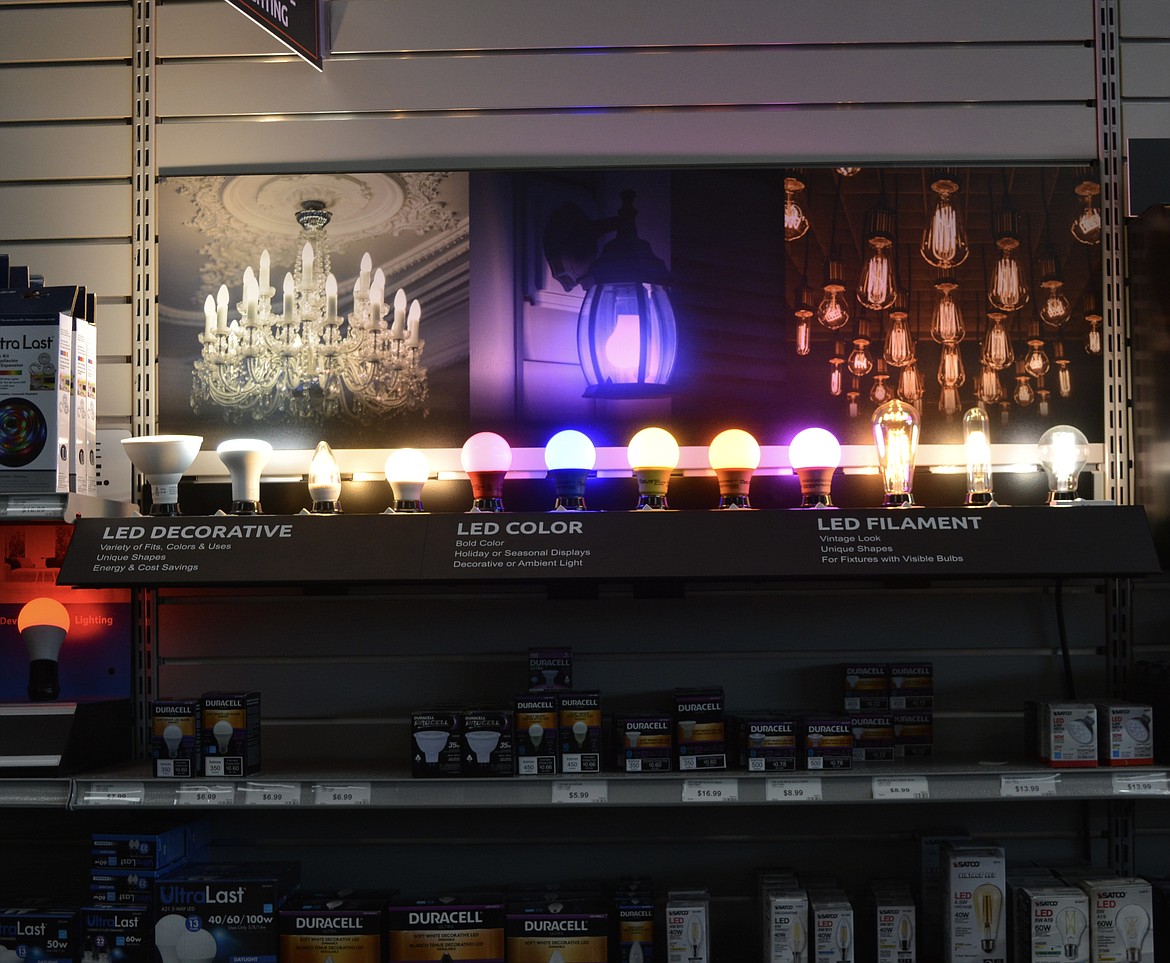New bulb rules illuminate path to a brighter future
If you’re heading to the store to replace a busted bulb, you may notice that you’ll no longer be able to purchase most incandescent light bulbs anymore. The U.S. government is shaking off the filament-filled incandescent bulbs in favor of the more energy-efficient bulbs of the future.
The Department of Energy’s rules to fully transition incandescent bulbs to energy-efficient standards went into place Aug. 1, but the plan to transition incandescent bulbs has been in place for years.
Some background
With the birth of more energy-efficient light bulbs such as LEDs, the DOE has been trying to enact a plan to prohibit the sale of incandescent bulbs since George W. Bush’s administration through the Energy Independence and Security Act.
The plan to move forward on banning most incandescent bulbs was scrapped in 2019 during the Trump administration, but DOE reignited the missive in the spring of 2022, so retailers have had time to transition ahead of the change.
Under the 2022 rollout, light bulbs must emit a minimum of 45 lumens per watt. The DOE estimates that by eliminating future sales of incandescent bulbs, Americans will reduce carbon emissions by 222 million metric tons over the next three decades.
Impact
Taylor Cross of Homestyles Lighting in Dalton Gardens said that though some customers have had a harder time adjusting as the retailers have greatly reduced their stock of incandescent bulbs over the last few months, it’s mostly just been business as usual.
“We found out at the beginning of the year, it’s really just been an education thing,” Cross said.
The change is expected to help boost savings for customers, and the DOE has projected that American households will save almost $3 billion per year when it comes to their utility bills.
Connor Bonomi, the store manager at Batteries Plus in Coeur d'Alene, said it’s been a gradual shift to anticipate the change from a retail perspective. As a store manager, Bonomi would prefer to carry both types of bulb, rather than undercutting the sale of incandescent lights.
“The transition started a few years ago. There are some bulbs we can’t sell in certain states and we’ve completely had to change the layout of the store,” Bonomi said.
With LEDs on the rise and looming regulations for incandescents moving into place, the light bulb section at the Canfield Avenue store used to be evenly divided between LEDs and old-fashioned filament bulbs, but now it hosts only LED varieties.
“They aren’t hazardous, but they suck too much power and we haven’t been able to sell these bulbs anymore in certain states. Companies don’t even want to make them anymore, and the price of LEDs is going down,” Bonomi said.
Having worked in a Washington store after the statewide switch went into effect there, Bonomi noted the rapid shift was what caused confusion. In the Batteries Plus location in Coeur d’Alene, a surprising number of individuals have approached him to discuss it.
“A lot of customers didn’t realize it had happened. They were blindsided. Here, they were more aware of it and people were asking me more about it,” Bonomi said.
LED light bulbs also last 25 to 50 times longer than incandescent bulbs.
If people want to evoke the ambiance of incandescent light bulbs while reaping the benefits of LEDs, there are options, like vintage LEDs, that customers can choose. They appear to have a faux filament and then have paint or a coating on the bulb to mimic the style of the phased-out bulbs.
Incandescent bulbs will still be sold for appliances and other devices, including:
• Appliance lamps, such as fridge and oven lights
• Plant lights
• Colored lamps
• Infrared lamps
• Black lights
• Floodlights
• Traffic signals
• Some other specialty lights
• Reflector lamps
• Showcase lamps
If you still have incandescent light bulbs left, never fear. Though their commercial sale is mostly ending in the United States, their use can continue in households for as long as the lights stay on.



